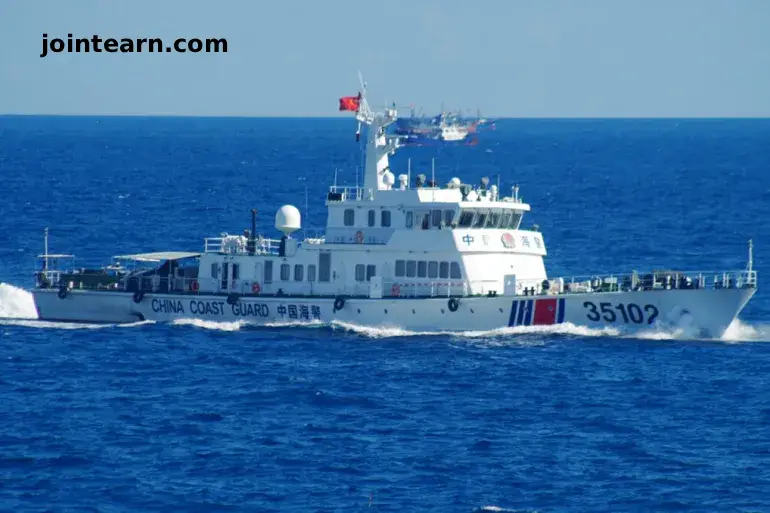
Chinese Coast Guard vessels have conducted patrols near the Japan-administered Senkaku Islands, escalating tensions in the East China Sea following remarks by Japanese Prime Minister Sanae Takaichi regarding Taiwan. The incident highlights ongoing territorial disputes between China and Japan and growing geopolitical friction in the region.
Details of the Chinese Coast Guard Patrol
According to a statement released by the China Coast Guard on Sunday, the operation involved vessel 1307 and was described as a “lawful patrol operation to uphold China’s rights and interests” around what Beijing refers to as the Diaoyu Islands. The islands are claimed by both China and Taiwan but are administered by Japan, making them a focal point of regional tension.
The patrol comes amid heightened nationalist sentiment in China following Takaichi’s comments suggesting Japan could respond militarily if China attacked Taiwan. China views such statements as provocative and a direct challenge to its claims over Taiwan.
Diplomatic Fallout
The Chinese response has been sharp. The Chinese consul general in Osaka made a controversial remark warning that “the dirty head that sticks itself out must be cut off,” prompting a formal complaint from Tokyo.
In addition, China summoned the Japanese ambassador and issued a travel advisory advising Chinese citizens to avoid visiting Japan. Three Chinese airlines also announced that tickets to Japan could be refunded or changed without charge, reflecting the seriousness with which China is handling the diplomatic rift.
Historical Context of the Senkaku/Diaoyu Dispute
The Senkaku Islands, known in China as Diaoyu, have long been a flashpoint in Sino-Japanese relations. Japan has administered the islands since 1972, but China and Taiwan maintain historic claims. Meanwhile, Taiwan, once governed by nationalist leader Chiang Kai-shek after his retreat from mainland China in 1949, maintains that its future should be decided solely by its people. Beijing, however, has never ruled out military force to reclaim the territory.
Historically, Japanese leaders have maintained a stance of strategic ambiguity on Taiwan, emphasizing that disputes should be resolved peacefully while avoiding direct intervention in cross-strait matters. Takaichi’s remarks represent a rare departure from this cautious approach, triggering Beijing’s strong reaction.
Regional Implications
The incident underscores the fragile balance of power in the East China Sea and highlights the broader tensions surrounding Taiwan’s sovereignty. Experts warn that repeated patrols by Chinese vessels and provocative statements from regional leaders risk escalating conflicts that could draw in the United States and other regional allies.
Analysts also note that incidents like this demonstrate the interplay between domestic politics and foreign policy, with nationalist rhetoric in both Beijing and Tokyo fueling confrontations over disputed territories.
Key Takeaways
- Chinese Coast Guard vessels patrolled near the Senkaku/Diaoyu Islands following comments by Japanese Prime Minister Takaichi regarding Taiwan.
- The patrol reflects China’s insistence on sovereignty claims over both Taiwan and the disputed islands.
- Tokyo filed a diplomatic complaint over inflammatory remarks by the Chinese consul in Osaka.
- Beijing issued travel advisories and airline warnings amid rising tensions.
- The East China Sea remains a hotspot for Sino-Japanese disputes, with potential regional and international implications.


Leave a Reply